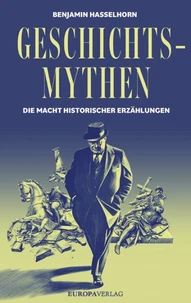Am 9. November 1918 floh Kaiser Wilhelm II. nach Holland ins Exil. Das besiegelte das Ende der Monarchie in Deutschland. Wilhelm II. galt fortan als Feigling und wurde als Hauptschuldiger am Ersten Weltkrieg identifiziert. Wenig bekannt ist heute, dass es auch ganz anders hätte kommen können: Manche im Umfeld des Kaisers planten, ihn im November 1918 an der Front den "Heldentod" sterben zu lassen und damit die Monarchie zu retten.
Das unrühmliche Ende hat das Bild vom Kaiserreich nachträglich verdunkelt - zu Unrecht? Winston Churchill meinte, bei einer stabilen parlamentarischen Monarchie hätte Hitler in Deutschland kaum Fuß fassen können.
Ländern wie Großbritannien oder Schweden gelang es, im 20. Jahrhundert mit ihrer Monarchie der Demokratie ein Stück Tradition und damit Stabilität zu geben.
Unter Berücksichtigung der aktuellen Monarchieforschung wirft dieses Buch einen neuen Blick auf die europäische Geschichte des 20. Jahrhunderts.
[The Death of the King. 1918 and the End of Monarchy in Germany]
On 9 November 1918, Kaiser Wilhelm II fled to the Netherlands into exile.
This marked the end of German monarchy. Henceforth, Wilhelm II was regarded a coward and identified as the chief culprit of World War One.
What is little known today is that things could have turned out very differently: plans were made to let the Kaiser die a "heroic death" on the frontline and thus save the monarchy.
The downfall of German monarchy retrospectively darkened the image of the Wilhelmine era - unjustly? Winston Churchill was convinced that a strong parliamentary monarchy would have prevented Hitler from rising to power.
Countries like Great Britain or Sweden who maintained their monarchies were able to give their democracies tradition and stability.
With regard to recent research on monarchy this book takes a fresh look at 20th century European history.
Am 9. November 1918 floh Kaiser Wilhelm II. nach Holland ins Exil. Das besiegelte das Ende der Monarchie in Deutschland. Wilhelm II. galt fortan als Feigling und wurde als Hauptschuldiger am Ersten Weltkrieg identifiziert. Wenig bekannt ist heute, dass es auch ganz anders hätte kommen können: Manche im Umfeld des Kaisers planten, ihn im November 1918 an der Front den "Heldentod" sterben zu lassen und damit die Monarchie zu retten.
Das unrühmliche Ende hat das Bild vom Kaiserreich nachträglich verdunkelt - zu Unrecht? Winston Churchill meinte, bei einer stabilen parlamentarischen Monarchie hätte Hitler in Deutschland kaum Fuß fassen können.
Ländern wie Großbritannien oder Schweden gelang es, im 20. Jahrhundert mit ihrer Monarchie der Demokratie ein Stück Tradition und damit Stabilität zu geben.
Unter Berücksichtigung der aktuellen Monarchieforschung wirft dieses Buch einen neuen Blick auf die europäische Geschichte des 20. Jahrhunderts.
[The Death of the King. 1918 and the End of Monarchy in Germany]
On 9 November 1918, Kaiser Wilhelm II fled to the Netherlands into exile.
This marked the end of German monarchy. Henceforth, Wilhelm II was regarded a coward and identified as the chief culprit of World War One.
What is little known today is that things could have turned out very differently: plans were made to let the Kaiser die a "heroic death" on the frontline and thus save the monarchy.
The downfall of German monarchy retrospectively darkened the image of the Wilhelmine era - unjustly? Winston Churchill was convinced that a strong parliamentary monarchy would have prevented Hitler from rising to power.
Countries like Great Britain or Sweden who maintained their monarchies were able to give their democracies tradition and stability.
With regard to recent research on monarchy this book takes a fresh look at 20th century European history.

 , qui est-ce ?
, qui est-ce ?